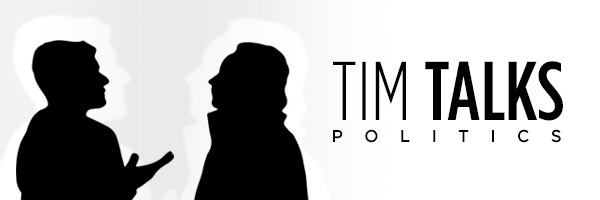July 8: Time to use the “R” word?
In which, the second quarter ends with recession on the horizon, Europe’s politics get shaken top to bottom, and the Sudan-Ethiopia conflict inches closer to war.
Time to use the “R” word?
It’s been such a long run of negative economic news of late, it’s a wonder no one has been talking about recession… until now.
With the second quarter over, inflation up (and possibly becoming “entrenched”), energy prices still climbing, a bearish market, etc., etc, negative GDP growth is looking pretty likely, which means: We’re officially in a recession.
Of all the economic indicators pointing that direction, the most obvious indicator to me that an official recession (two straight quarters of negative GDP growth) was likely was Vox.com saying so. Why? For the last couple of years, Vox has been one of many progressive news outlets that have been at least “nuanced” and at most whitewashing the bad economic trends. This week, they didn’t even try to sugarcoat it. I’d say the data is pretty conclusive.
Does a recession mean everything is going to be bad, economically speaking? Not exactly. Like any economic season, it will be good for some, bad for others, so it wouldn’t hurt to take stock of your finances. Additionally, though, recessions need to be understood as the correctives they are for inflationary policies. When an inflationary period has exhausted itself, the recession is the gravitational pull that brings an economy down to a more “natural” baseline. In that respect, it can be a helpful (though difficult) thing.
That’s not to say one should desire recessions. Like I said, they’re largely a consequence of inflation and risky, overconfident/stupid policy decisions and investment practices. So, what we should desire is a measure of self-control and humility amongst our policymakers and financiers. We certainly don’t have much trust to give them.
Boris be gone, and going Dutch on democracy
The last several weeks, when there’s been European news to report it’s been mostly dealing with the war in Ukraine (and Russia would certainly like to keep our attention there). It’s been different this week though.
After enduring months of controversy, scandal, and intraparty intrigue that resulted in cabinet resignations, British Prime Minister Boris Johnson resigned as PM and Torey Party leader yesterday. This action will trigger an internal election to appoint a new Torey leader/PM, but will also trigger a new set of Parliamentary elections. The resulting political upheaval, while not uncommon in British politics, will likely have some post-Brexit ripples on the European continent.
Speaking of post-Brexit ripples, it’s been a while since we’ve heard from the eurosceptic grassroots conservatives on the continent. This week, the Dutch farmers of the Netherlands took a page from the Canadian truck drivers playbook to stage rallies and protests in Amsterdam over the government’s takeover of agricultural land to cut nitrogen emissions per EU mandates.
The farmer protests in the Netherlands, like the Canadian protests over Covid restrictions, or French protests over energy prices, and Indian farmer protests over ag policy are all reminders that democracy is not a top down system of government. It’s a shared system of government, and when those up top start acting like it’s not, well… they get some pretty harsh wake up calls.
Beyond that though, the Dutch government’s takeover of agricultural land threatens global food supply chains already strained by the war in Ukraine. The Netherlands is a net food exporter, and such a policy is likely to contribute to an increase in world hunger. “Don’t worry,” says the UN, “world hunger isn’t such a bad thing.”
Keep reading with a 7-day free trial
Subscribe to Tim Talks Politics to keep reading this post and get 7 days of free access to the full post archives.



